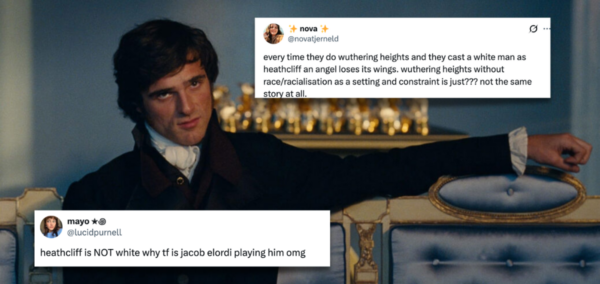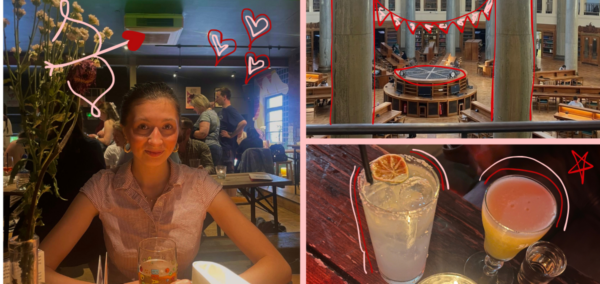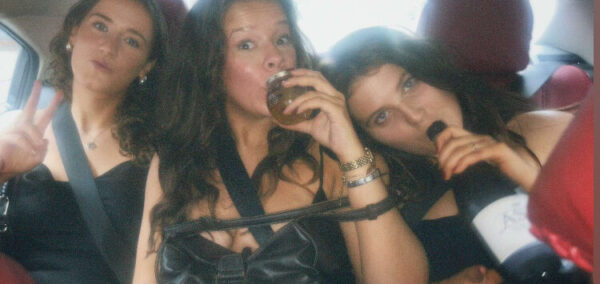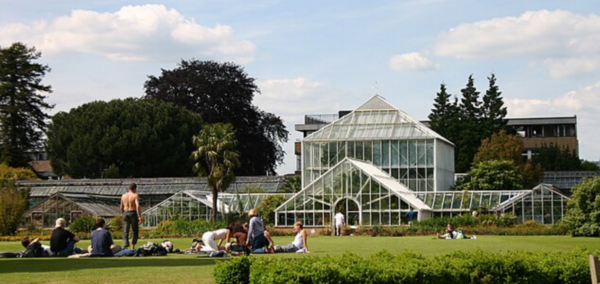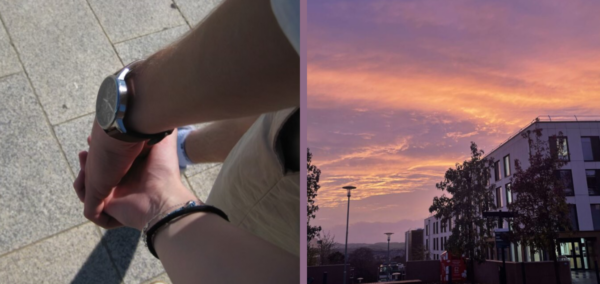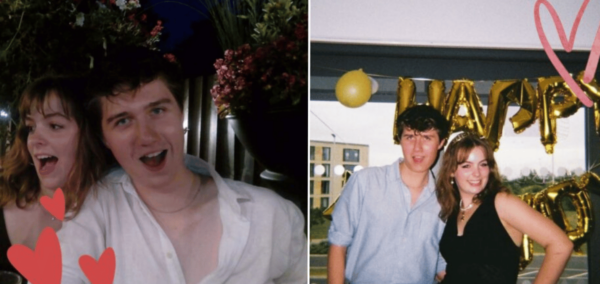
Eight things a Durham student learnt from walking 541 kilometres from London to Paris
In June, I walked from London to Paris for the Malala Fund, raising over £4,000: These are the lessons I learnt
I’m Ella, a fourth year politics student at Durham, and in June I walked from London to Paris with my friend Anna. We raised over £4,000 for the Malala Fund, over the course of 18 days and 541 kilometres. We both studied for a year abroad in Paris, and chose it as the destination in order to go from where we lived to where we previously studied. Anyway, here are eight things I learnt walking a very long way.
1. Don’t go to Poland in January
To this day, I’m not sure exactly how the idea for “Notre Grande Marche” (Our Big Walk) came about. We were in Krakow, in Poland, in January. Not my brightest idea. Even less bright, perhaps, was my choice of coat: A gilet. Being uni students, the obvious solution was to settle ourselves in a warm corner of a rather aptly named “Vodka Bar” and stay until close. You can imagine how that went.
I must now choose my words very carefully… In my humble opinion, sometimes – only sometimes – alcohol sparks brilliance. Most often, it sparks utter stupidity. But in this case, we had hit the jackpot of ideas (or so our drunk selves thought), and much to our surprise, the next morning’s heavy-headedness did little to deter our enthusiasm.
2. Walking far will hurt your feet (and your pride)

Most Read
I’m not the sportiest of people. I try to avoid strenuous exercise where possible. The daily six storey climb up to my little Parisian apartment was absolutely my limit; I still *sometimes* drive to my lectures. I must therefore warn you, in the event you decide to walk over 500 kilometres, your feet will not thank you. In fact, four months later, my feet are still ugly. My right little toenail has peeled away. My former blisters cast a shadow of dry skin where they once sat. I am in desperate need of a pedicure, it has to be said. To conclude, extreme walking is an ugly, painful business: enter at your feet’s risk.
3. Numbers over four are hard to conceptualise
I once read somewhere that the human brain is incapable of conceptualising numbers over four. I never thought much of it: I can picture five dots on a dice, eight legs on a spider. But when asked about the walk – 541 kilometres, 712,026 steps, 107 hours – the theory rings all too true. The truth is I can’t quite grapple with what we achieved. I distinctly remember the journey home, however. The 19th of June, three days after we arrived in Paris. I sit on a crowded train, hurtling me and my fellow passengers through Northern France back to London. The screen above me flashes our speed teasingly, and the irony is not lost on me. 186 kilometres per hour makes our feat entirely insignificant, and yet equally all the more significant. I have been meaning to write its story since that day. And yet, I have no idea quite how. But here’s my best shot.
4. It’s all a mindset
The first morning of an 18 day walk from London to Paris should feel pretty daunting. But any tourists observing the two girls sauntering through Green Park from the tube station to Buckingham Palace would never guess the mammoth journey on which they would soon embark. Perhaps the two girls did not quite know it themselves. What I know is that the wearied girls gleefully skipping through the crowds of Parisian tourists five hundred kilometres later held the same determined enthusiasm evident on that first day’s overcast morning.
Make no mistake about it, it wasn’t easy. By absolutely no means were we gleefully skipping up muddy hills or through cob-webbed bean fields. I’m not a morning person on the best of days, and so you can imagine that a marathon at 7am is a fickle creature. But we had made a silent choice, a promise to ourselves, that we would simply – rather Britishly – get on with it, whatever may come. And with a little encouragement in the form of regular karaoke interludes, snack breaks, and podcast indulgence (shout-out Rory Stewart and Alastair Campbell), that’s exactly what we did.
5. The world is on your doorstep, literally

In true London fashion, the clouds held firm as we waited for my uncle (our first guest) to arrive and for our walk to begin. I’d like to say, having located said uncle, who then armed us with three milky cappuccinos, that our journey began in as mundane a way as a morning commute: No frills, no fanfares. But that isn’t strictly true. Our route conjured up all manners of places. And while Dartford or Calais might fall slightly short of the Notre Grande Marche travel guide, weirdly, around every next corner was something different, new. Monotony was not characteristic of our walk.
Even so, every place we walked through felt familiar. There were no culture shocks, no exoticism. It was mundane and understood. And yet the intrinsic gratification buried in the art of exploring was as true as ever: Peering into another person’s every day, trying on their shoes, nosing through their shops, and then leaving, never to return, but all the better for it. Our walk is a perfect illustration of the celebrity of normality, and that things in life should be appreciated for no reason other than for the fact that they exist.
6. It’s not a fashion show

The famed words every parent has uttered not so infrequently: “It’s not a fashion show”. I thought that at 22 years old, we would have outgrown such advice. But surprisingly enough, on a Sunday night in May, the familiar dad versus daughter showdown, once again, reared its ugly head. More surprisingly, perhaps, is that for the first time, maybe in the history of dads and daughters, the advice was listened to. If I’m entirely honest, in our heart of hearts, we knew that 10 T-shirts, a glass bottle of Giorgio Armani’s Si, a make-up bag the size of a toaster and a pair of straighteners were not “essential” items. Even so, the paternal mockery was not so well received, and the shedding of these prized possessions was not easy, although quickly appreciated (within less than an hour of carrying them).
7. We’re the lucky ones
Our cause was the Malala Fund, a charity which needs no introduction (or so I thought until we discovered that my uncle had confused our cause for the sub-Saharan country of Malawi). So for those who don’t know, Malala Yousafzai, its namesake co-founder, made headlines in 2012 after being shot in the head on her way home from school. She was targeted by the Taliban after speaking out against their ban on girls’ education two years earlier. Her story remains ingrained in my brain, as I’m sure it is for many others.
A brief scroll through the Malala Fund’s homepage will send shivers down your spine. The numbers are stunning. Nearly 120 million girls are out of school worldwide. About 14 per cent of the world’s population cannot read or write, of which two thirds are women. Only 63 per cent of girls in Tanzania complete secondary education. In Nigeria that number drops to 38 per cent. In India, it’s one in three. I live in a world where going to school is as mundane as brushing your teeth. And so we walked from where we live to where we studied, for all those girls who cannot safely walk from where they live to their schools. The Malala Fund “fights for a world where every girl can learn and lead”. In a world where we are privileged enough to learn freely and safely, we must not forget to lead.
8. Doing hard things is important

Our walk was big, and hard, and tiring. And yet the whole thing can be boiled down to a matter of putting one foot in front of the other and keeping going. One step more, small gains. Our walk is a reminder that consistency is pretty formidable. And that small gains day after day after day become big gains. Putting your mind to something is an achievement in itself, and hard work pays off – the two girls jumping excitedly at the first sight of a toy-sized Eiffel Tower, barely visible on the horizon, can surely testify to that.
But zooming out past our individual achievements, the most gratifying part of our walk was inevitably our cause, always in the back of our minds, reminding us that our mission was bigger than ourselves. Two girls can walk from London to Paris and raise thousands. One girl can walk to school, get shot, and found a charity that has reached over 21 million students across 10 different countries. Affecting real change is possible, and important. Girls’ education opens doors which transcend cultures and classes. And I know, that in spite of our blistered feet and shin splints, we would do it again in a heartbeat. Because when you send love into the universe, it always comes back.





